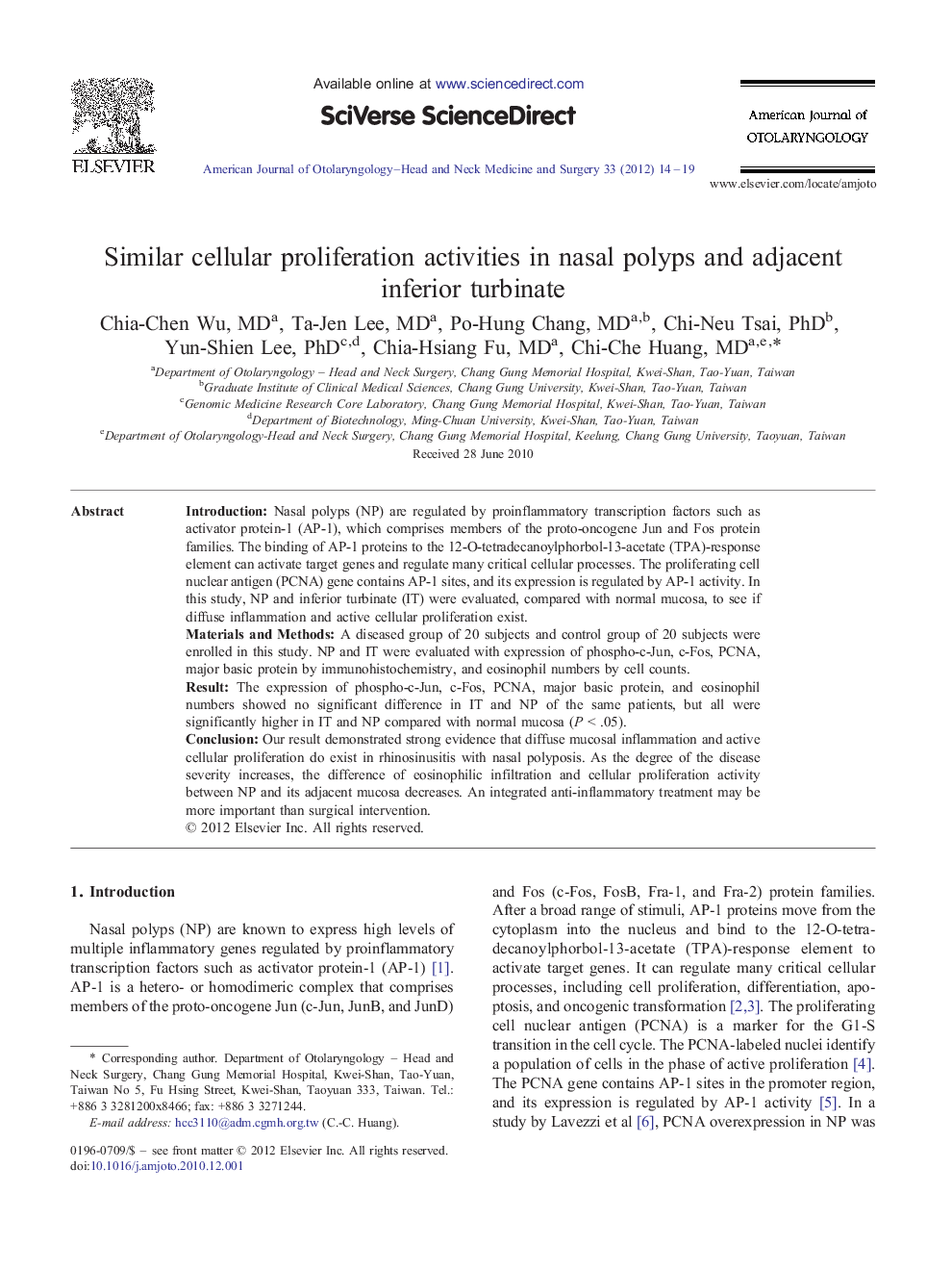| Article ID | Journal | Published Year | Pages | File Type |
|---|---|---|---|---|
| 4104008 | American Journal of Otolaryngology | 2012 | 6 Pages |
IntroductionNasal polyps (NP) are regulated by proinflammatory transcription factors such as activator protein-1 (AP-1), which comprises members of the proto-oncogene Jun and Fos protein families. The binding of AP-1 proteins to the 12-O-tetradecanoylphorbol-13-acetate (TPA)-response element can activate target genes and regulate many critical cellular processes. The proliferating cell nuclear antigen (PCNA) gene contains AP-1 sites, and its expression is regulated by AP-1 activity. In this study, NP and inferior turbinate (IT) were evaluated, compared with normal mucosa, to see if diffuse inflammation and active cellular proliferation exist.Materials and MethodsA diseased group of 20 subjects and control group of 20 subjects were enrolled in this study. NP and IT were evaluated with expression of phospho-c-Jun, c-Fos, PCNA, major basic protein by immunohistochemistry, and eosinophil numbers by cell counts.ResultThe expression of phospho-c-Jun, c-Fos, PCNA, major basic protein, and eosinophil numbers showed no significant difference in IT and NP of the same patients, but all were significantly higher in IT and NP compared with normal mucosa (P < .05).ConclusionOur result demonstrated strong evidence that diffuse mucosal inflammation and active cellular proliferation do exist in rhinosinusitis with nasal polyposis. As the degree of the disease severity increases, the difference of eosinophilic infiltration and cellular proliferation activity between NP and its adjacent mucosa decreases. An integrated anti-inflammatory treatment may be more important than surgical intervention.
